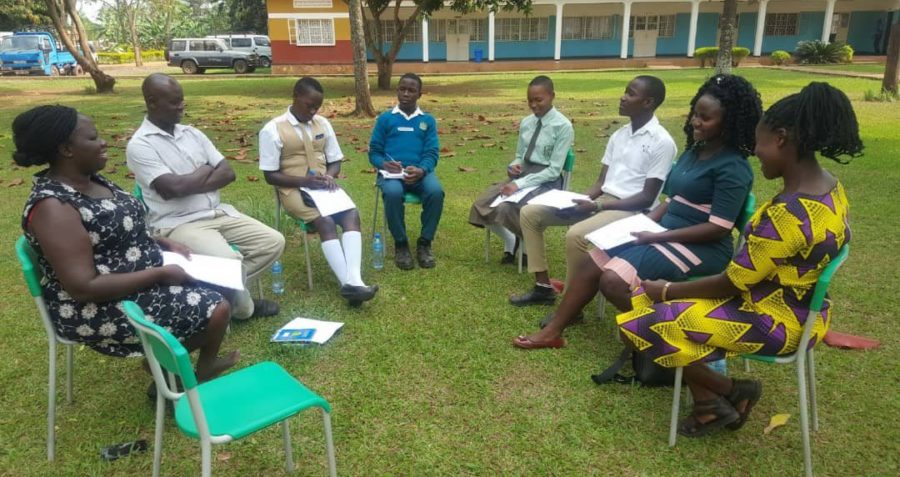Scaling-up school-based comprehensive sexuality education

Key information
- Organisation: Youth Alive Uganda
- Country: Uganda
- Region: Eastern and southern Africa
- Stage of innovation: Stage 1: Idea generation
- Start date: Feb 2020
- End date: Jun 2020
- Type of innovation: Service innovation – new or improved service
- Budget: US$73,000
- Funded by: Frontline AIDS with support from SIDA
Summary of intervention
In Uganda, adolescent girls and young women experience high rates of unwanted pregnancies, gender-based violence, HIV and STIs. Uganda’s 2018 National Sexuality Education Framework provides a blueprint for teaching age-appropriate and culturally sensitive comprehensive sexuality education (CSE) to address these issues but this has not been fully adopted by schools.
In response, Youth Alive has designed school clubs to provide CSE alongside STI screening and treatment. School students helped design the clubs, and the recommended that two peer educators (one male and one female) from the school co-deliver the sessions with a teacher. Alongside learning activities, debates, music, dance and drama were integrated into the club at the students’ suggestion. Club members elect the teacher, peer educators and three governance leaders, who oversee activities. The sessions happen during school-time for sustainability and cost effectiveness.
In 5 months, 52 CSE clubs were formed in 52 primary and secondary. Most still exist and would like to continue.
Learnings
- Key stakeholders must be involved from the start, particularly the learners, but also local government leaders, parent representatives and religious leaders. They should input into the project’s design, development of training and educational materials, implementation, monitoring and evaluation. But other stakeholders must be awareness that young people will be at the centre of designing and implementing the programme, as they need safe space to discuss their unique challenges.
- There is also a need to design and implement CSE programme that reach learners in their communities. This will help reemphasise the learning, allow for wider community involvement and help address unforeseen circumstances such as COVID-19, which can keep young people out of school.

